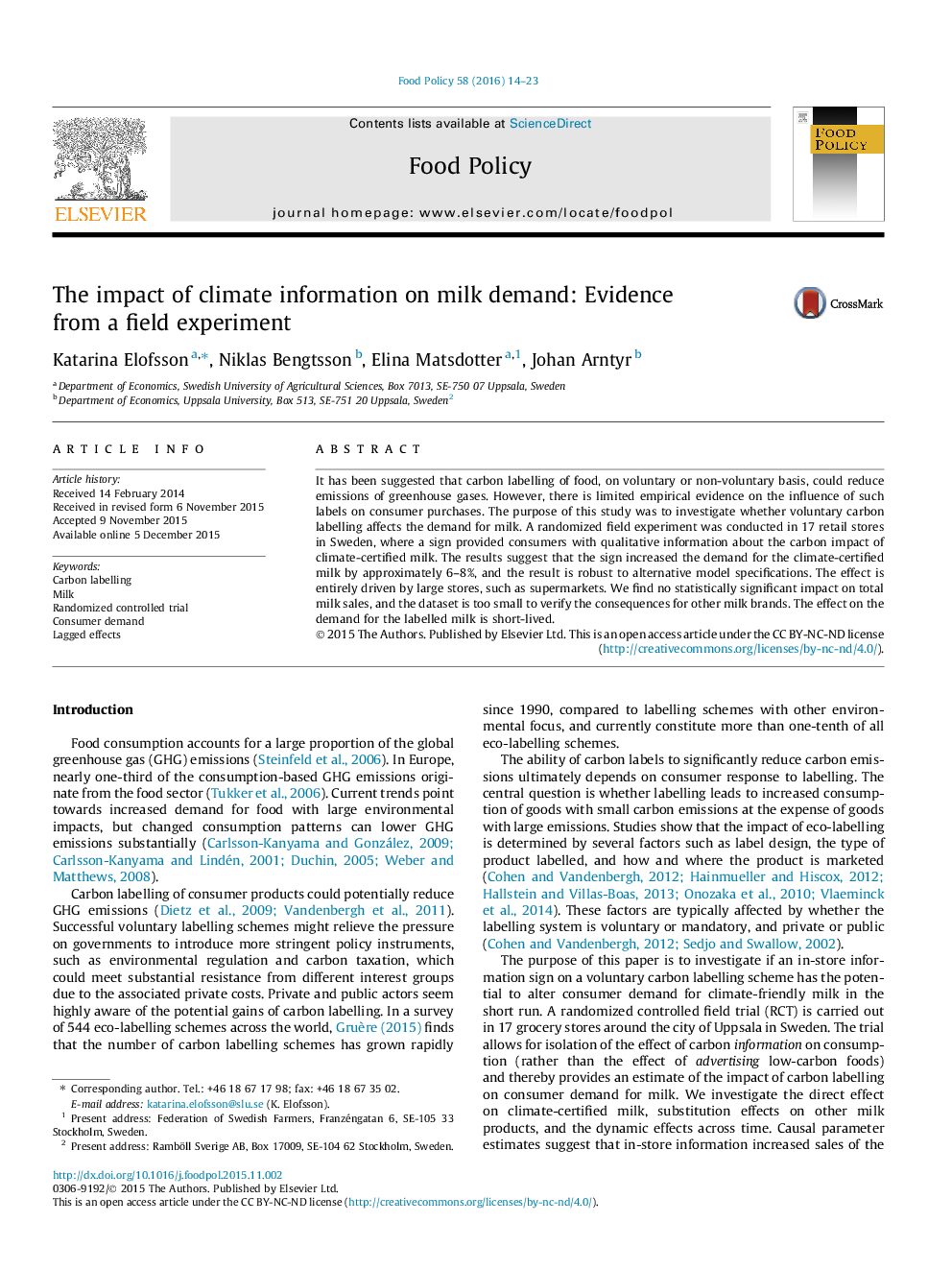| Article ID | Journal | Published Year | Pages | File Type |
|---|---|---|---|---|
| 5070265 | Food Policy | 2016 | 10 Pages |
â¢We investigate if carbon labelling affects the demand for milk.â¢A randomized field experiment was conducted in 17 Swedish retail stores.â¢Results show that carbon labelling increased purchases of labelled milk by 6-8%.â¢The effect is completely driven by changes in purchases in larger stores.â¢We find no intertemporal effects of labelling.
It has been suggested that carbon labelling of food, on voluntary or non-voluntary basis, could reduce emissions of greenhouse gases. However, there is limited empirical evidence on the influence of such labels on consumer purchases. The purpose of this study was to investigate whether voluntary carbon labelling affects the demand for milk. A randomized field experiment was conducted in 17 retail stores in Sweden, where a sign provided consumers with qualitative information about the carbon impact of climate-certified milk. The results suggest that the sign increased the demand for the climate-certified milk by approximately 6-8%, and the result is robust to alternative model specifications. The effect is entirely driven by large stores, such as supermarkets. We find no statistically significant impact on total milk sales, and the dataset is too small to verify the consequences for other milk brands. The effect on the demand for the labelled milk is short-lived.
